Hip resurfacing surgery is highly recommended to candidates diagnosed with advanced hip arthritis. However, the procedure is only preferred to the individuals who do not require complete replacement of the femoral head along with the bone. As opposed to THR or total hip replacement surgery, hip resurfacing keeps the femoral head intact and implements a modified approach to provide a cure. The procedures are suggested to suitable candidates who shall respond better without a complete replacement. The success rates for hip resurfacing surgery varies from 86% to 93% for 8-10 years. The longevity of the procedure also depends on the type of implant used across the world.
Hip arthritis often results in bone degeneration and cartilage damage, owing to which, resurfacing surgeries are highly implemented. The procedure provides umpteenth relief to candidates struggling with extreme pain, inflammation and partial or complete immobility. The procedure involves fixing a metal cap on the head of the femoral bone which is complimented with a cup shaped metal prosthesis affixed at the acetabular cavity. The femoral head is polished for ensuring a smooth surface in order to reduce friction between the bone and the metal cap. The metal used, in general, is an alloy of cobalt and chrome, which ensures guaranteed longevity to the candidates.
Hip resurfacing surgery is considered one of the better alternatives to complete replacement surgeries for suitable candidates. However, the candidate should:
The cost of hip resurfacing surgery varies from $5,500 to $28,000. The cost mostly depends on the country from where the procedure is being availed. Hence, determining factors for hip resurfacing cost are:
| Country | Minimum Cost | Minimum Local Currency | Maximum Cost | Maximum Local Currency |
|---|---|---|---|---|
| India | USD 4500 | INR 374175 | USD 6500 | INR 540475 |
Treatment cost
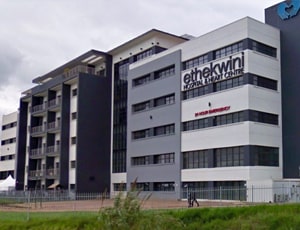
Apart from in-detail treatment procedures available, Lenmed Ethekwini Hospital and Heart Centre located in Durban, South Africa has a wide variety of facilities available for International Patients. Some of the facilities which are provided by them are Accommodation, Airport Transfer, Choice of Meals, Interpreter, SIM, TV inside room. Also listed below are some of the most prominent infrastructural details:
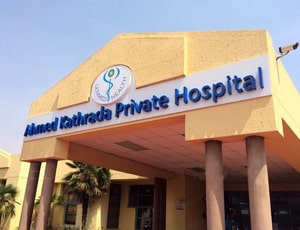
Apart from in-detail treatment procedures available, Lenmed Ahmed Kathrada Private Hospital located in Johannesburg, South Africa has a wide variety of facilities available for International Patients. Some of the facilities which are provided by them are Accommodation, Airport Transfer, Choice of Meals, Interpreter, SIM, TV inside room. Also listed below are some of the most prominent infrastructural details:
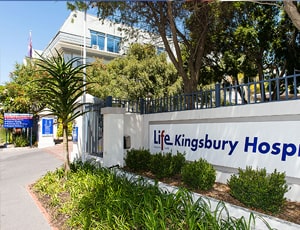
Apart from in-detail treatment procedures available, Life Kingsbury Hospital located in Cape Town, South Africa has a wide variety of facilities available for International Patients. Some of the facilities which are provided by them are Accommodation, Airport Transfer, Choice of Meals, Interpreter, SIM, TV inside room. Also listed below are some of the most prominent infrastructural details:

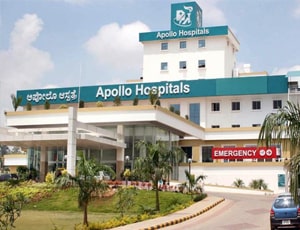
Types of Hip Resurfacing Surgery in Apollo Hospitals Bannerghatta and its associated cost
| Treatment Option | Approximate Cost Range (USD) | Approximate Cost Range (INR) |
|---|---|---|
| Metal-on-Metal Resurfacing | 7817 - 10007 | 651940 - 825095 |
| Ceramic-on-Ceramic Resurfacing | 8898 - 11483 | 732075 - 930763 |
| Ceramic-on-Metal Resurfacing | 8454 - 10785 | 699709 - 881442 |
| Metal-on-Polyethylene Resurfacing | 7304 - 9609 | 612536 - 783221 |
| Polyethylene-on-Ceramic Resurfacing | 8365 - 10628 | 695514 - 879038 |
| Polyethylene-on-Metal Resurfacing | 8030 - 10128 | 647352 - 845717 |
| Revision Hip Resurfacing | 11297 - 16643 | 931209 - 1378612 |
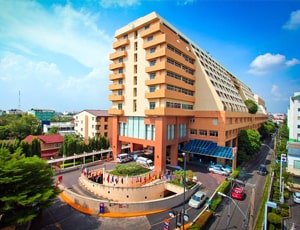
Types of Hip Resurfacing Surgery in Vejthani Hospital and its associated cost
| Treatment Option | Approximate Cost Range (USD) | Approximate Cost Range (THB) |
|---|---|---|
| Metal-on-Metal Resurfacing | 13498 - 18201 | 479618 - 644479 |
| Ceramic-on-Ceramic Resurfacing | 14390 - 20205 | 513355 - 730071 |
| Ceramic-on-Metal Resurfacing | 13844 - 18935 | 500570 - 691309 |
| Metal-on-Polyethylene Resurfacing | 13158 - 17261 | 457446 - 629205 |
| Polyethylene-on-Ceramic Resurfacing | 14194 - 18797 | 501439 - 650321 |
| Polyethylene-on-Metal Resurfacing | 13574 - 17708 | 479046 - 627887 |
| Revision Hip Resurfacing | 15404 - 22983 | 563207 - 786245 |
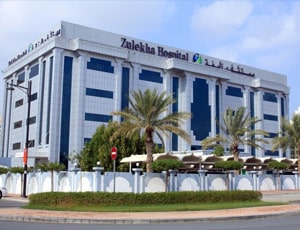
Types of Hip Resurfacing Surgery in Zulekha Hospital Dubai and its associated cost
| Treatment Option | Approximate Cost Range (USD) | Approximate Cost Range (AED) |
|---|---|---|
| Metal-on-Metal Resurfacing | 15864 - 20013 | 58407 - 75012 |
| Ceramic-on-Ceramic Resurfacing | 16978 - 22185 | 60903 - 84128 |
| Ceramic-on-Metal Resurfacing | 16176 - 21949 | 61124 - 81481 |
| Metal-on-Polyethylene Resurfacing | 15488 - 20049 | 56958 - 73127 |
| Polyethylene-on-Ceramic Resurfacing | 16583 - 20921 | 60530 - 74716 |
| Polyethylene-on-Metal Resurfacing | 15878 - 20281 | 58360 - 73241 |
| Revision Hip Resurfacing | 17646 - 28376 | 65637 - 102871 |
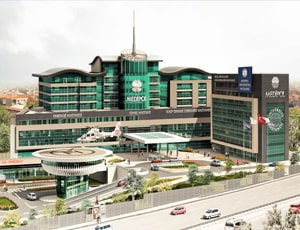
Types of Hip Resurfacing Surgery in Medipol Mega University Hospital and its associated cost
| Treatment Option | Approximate Cost Range (USD) | Approximate Cost Range (TRY) |
|---|---|---|
| Metal-on-Metal Resurfacing | 11003 - 16681 | 335651 - 504906 |
| Ceramic-on-Ceramic Resurfacing | 12200 - 18201 | 372328 - 547752 |
| Ceramic-on-Metal Resurfacing | 11667 - 17106 | 355001 - 514807 |
| Metal-on-Polyethylene Resurfacing | 10568 - 15881 | 316542 - 471454 |
| Polyethylene-on-Ceramic Resurfacing | 11854 - 17121 | 358945 - 515760 |
| Polyethylene-on-Metal Resurfacing | 11321 - 16993 | 339061 - 513478 |
| Revision Hip Resurfacing | 13799 - 20353 | 408196 - 599959 |
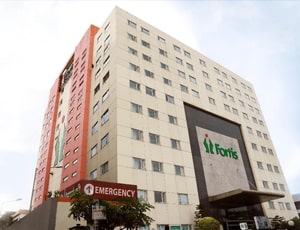
Types of Hip Resurfacing Surgery in Fortis Hospital and its associated cost
| Treatment Option | Approximate Cost Range (USD) | Approximate Cost Range (INR) |
|---|---|---|
| Metal-on-Metal Resurfacing | 7132 - 9162 | 583390 - 751310 |
| Ceramic-on-Ceramic Resurfacing | 8109 - 10177 | 668476 - 829748 |
| Ceramic-on-Metal Resurfacing | 7586 - 9639 | 621230 - 786863 |
| Metal-on-Polyethylene Resurfacing | 6569 - 8612 | 540190 - 710345 |
| Polyethylene-on-Ceramic Resurfacing | 7591 - 9646 | 623113 - 787420 |
| Polyethylene-on-Metal Resurfacing | 7096 - 9157 | 582632 - 746870 |
| Revision Hip Resurfacing | 10101 - 15189 | 831504 - 1248276 |
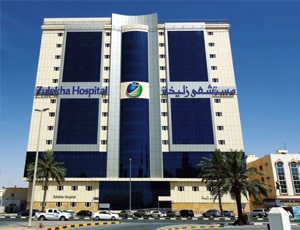
Types of Hip Resurfacing Surgery in Zulekha Hospital Sharjah and its associated cost
| Treatment Option | Approximate Cost Range (USD) | Approximate Cost Range (AED) |
|---|---|---|
| Metal-on-Metal Resurfacing | 16008 - 19978 | 57384 - 75898 |
| Ceramic-on-Ceramic Resurfacing | 16835 - 22087 | 62340 - 82390 |
| Ceramic-on-Metal Resurfacing | 16258 - 21954 | 58798 - 80726 |
| Metal-on-Polyethylene Resurfacing | 15355 - 19681 | 54668 - 71099 |
| Polyethylene-on-Ceramic Resurfacing | 16470 - 20981 | 61145 - 77991 |
| Polyethylene-on-Metal Resurfacing | 15766 - 20473 | 58500 - 75112 |
| Revision Hip Resurfacing | 18050 - 28220 | 67145 - 104908 |
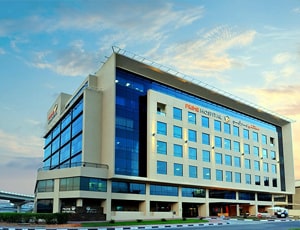
Types of Hip Resurfacing Surgery in Prime Hospital and its associated cost
| Treatment Option | Approximate Cost Range (USD) | Approximate Cost Range (AED) |
|---|---|---|
| Metal-on-Metal Resurfacing | 15470 - 19968 | 57336 - 73797 |
| Ceramic-on-Ceramic Resurfacing | 17245 - 22989 | 63016 - 81290 |
| Ceramic-on-Metal Resurfacing | 16258 - 21679 | 59355 - 79134 |
| Metal-on-Polyethylene Resurfacing | 15386 - 19469 | 55347 - 73776 |
| Polyethylene-on-Ceramic Resurfacing | 16431 - 20873 | 59010 - 75241 |
| Polyethylene-on-Metal Resurfacing | 15667 - 20371 | 56933 - 74937 |
| Revision Hip Resurfacing | 17854 - 28653 | 65963 - 103524 |
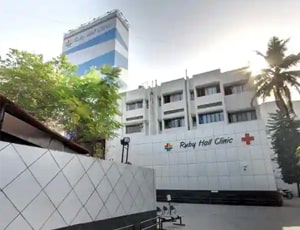
Types of Hip Resurfacing Surgery in Ruby Hall Clinic and its associated cost
| Treatment Option | Approximate Cost Range (USD) | Approximate Cost Range (INR) |
|---|---|---|
| Metal-on-Metal Resurfacing | 6595 - 8549 | 531130 - 694167 |
| Ceramic-on-Ceramic Resurfacing | 7595 - 9365 | 621778 - 765535 |
| Ceramic-on-Metal Resurfacing | 6964 - 8771 | 568219 - 717293 |
| Metal-on-Polyethylene Resurfacing | 6097 - 7853 | 493957 - 653677 |
| Polyethylene-on-Ceramic Resurfacing | 6985 - 8944 | 574265 - 738628 |
| Polyethylene-on-Metal Resurfacing | 6457 - 8422 | 537996 - 699494 |
| Revision Hip Resurfacing | 9231 - 14177 | 759352 - 1139245 |
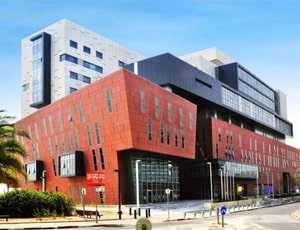
Assuta Hospital located in Tel-Aviv, Israel is accredited by JCI. Also listed below are some of the most prominent infrastructural details:
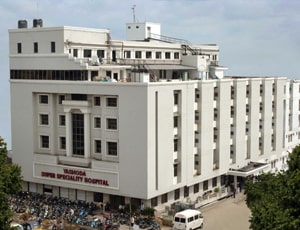
Types of Hip Resurfacing Surgery in Yashoda Hospital, Malakpet and its associated cost
| Treatment Option | Approximate Cost Range (USD) | Approximate Cost Range (INR) |
|---|---|---|
| Metal-on-Metal Resurfacing | 7095 - 9124 | 584567 - 751062 |
| Ceramic-on-Ceramic Resurfacing | 8088 - 10160 | 664209 - 835128 |
| Ceramic-on-Metal Resurfacing | 7647 - 9672 | 625956 - 786915 |
| Metal-on-Polyethylene Resurfacing | 6603 - 8653 | 542284 - 710056 |
| Polyethylene-on-Ceramic Resurfacing | 7630 - 9633 | 626561 - 792522 |
| Polyethylene-on-Metal Resurfacing | 7107 - 9091 | 584604 - 748503 |
| Revision Hip Resurfacing | 10159 - 15276 | 835464 - 1245480 |
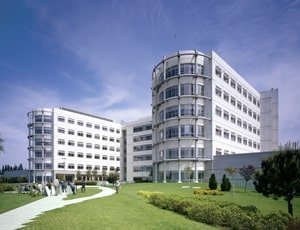
Types of Hip Resurfacing Surgery in Anadolu Medical Center and its associated cost
| Treatment Option | Approximate Cost Range (USD) | Approximate Cost Range (TRY) |
|---|---|---|
| Metal-on-Metal Resurfacing | 11379 - 17046 | 335642 - 504581 |
| Ceramic-on-Ceramic Resurfacing | 12121 - 17954 | 372835 - 539624 |
| Ceramic-on-Metal Resurfacing | 11824 - 17127 | 348756 - 533947 |
| Metal-on-Polyethylene Resurfacing | 10841 - 15841 | 319302 - 466767 |
| Polyethylene-on-Ceramic Resurfacing | 11637 - 17132 | 359861 - 530384 |
| Polyethylene-on-Metal Resurfacing | 11246 - 17181 | 339847 - 509853 |
| Revision Hip Resurfacing | 13658 - 20211 | 412113 - 608808 |
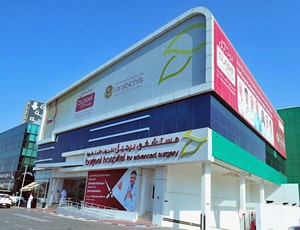
Types of Hip Resurfacing Surgery in Burjeel Hospital for Advanced Surgery Dubai and its associated cost
| Treatment Option | Approximate Cost Range (USD) | Approximate Cost Range (AED) |
|---|---|---|
| Metal-on-Metal Resurfacing | 15470 - 19810 | 58194 - 74708 |
| Ceramic-on-Ceramic Resurfacing | 16639 - 22427 | 61896 - 83039 |
| Ceramic-on-Metal Resurfacing | 16521 - 22310 | 60261 - 81270 |
| Metal-on-Polyethylene Resurfacing | 15082 - 19672 | 56606 - 73359 |
| Polyethylene-on-Ceramic Resurfacing | 16151 - 20787 | 61090 - 75888 |
| Polyethylene-on-Metal Resurfacing | 15974 - 19951 | 57744 - 72829 |
| Revision Hip Resurfacing | 17622 - 28354 | 65085 - 101233 |
Hip resurfacing is a type of hip replacement surgery that uses implants to treat hip pain and stiffness caused by osteoarthritis and other conditions. These implants replace damaged tissue and bone, facilitating smoother movement. Men under 60 are the ideal candidates for hip resurfacing.
Hip resurfacing is typically performed under spinal anesthesia with sedation, so you are asleep but breathing independently. this surgery is completed in under two hours. During hip resurfacing, your surgeon:
The patient will spend a day or two in the hospital. With the surgeon's approval, you can start putting weight on the leg soon after surgery. Crutches, a walker, or a cane may be needed for a few weeks until you feel comfortable moving around.
Nonsteroidal anti-inflammatory drugs (NSAIDs) can help ease pain, and physical therapy will assist in regaining mobility. Everyday activities can typically be resumed after six weeks. By the end of 12 months, you should be able to return to full, unrestricted activities, including sports.
Ask your healthcare adviser for the best multiple options and choose the one that meets your expectations
The Hip Resurfacing Surgery package cost in South Africa varies from one hospital to another and may offer different benefits. There are many hospital that cover the cost of pre-surgical investigations of the patient in the treatment package. Typically, the package cost of Hip Resurfacing Surgery in South Africa includes the expenses related to the surgeon's fee, anesthesia, hospital, meals, nursing and ICU stay. Extended hospital stay, complications after the surgery or new diagnosis may affect the overall cost of Hip Resurfacing Surgery in South Africa.
There are several best hospitals for Hip Resurfacing Surgery in South Africa. Some of the best hospitals for Hip Resurfacing Surgery in South Africa include the following:
While the speed of recovery may vary from patient to patient, they are still required to stay for about 25 days after discharge. During this time, the patient undergoes medical tests and consultations. this is to ensure that the treatment was successful and the patient us safe to return.
Apart from the Hip Resurfacing Surgery cost, the patient may have to pay for additional daily expenses such as for guest house after discharge and meals. The per day cost in this case may start from USD 50 per person.
Some of the cpopular cities in South Africa that offer Hip Resurfacing Surgery include the following:
The patient has to spend about 3 days in the hospital after Hip Resurfacing Surgery for proper recovery and to get clearance for discharge. This phase is important to ensure that the patient is recovering well and is clinically stable. During this time, several tests are performed before the patient is deemed suitable for discharge.
The average rating for Hip Resurfacing Surgery hospitals in South Africa is 2.9. This rating is automatically calculated on the basis of several parameters such as the infrastructure of the hospital, quality of services, nursing support and other services.
There are more than 3 hospitals that offer Hip Resurfacing Surgery in South Africa. Such hospitals have the required infrastructure and a dedicated unit where patients can be treated. Such hospitals follow all legal protocols and guidelines as specified by the local medical affairs body when it comes to the treatment of international patients.
Some of the best doctors for Hip Resurfacing Surgery in South Africa are: